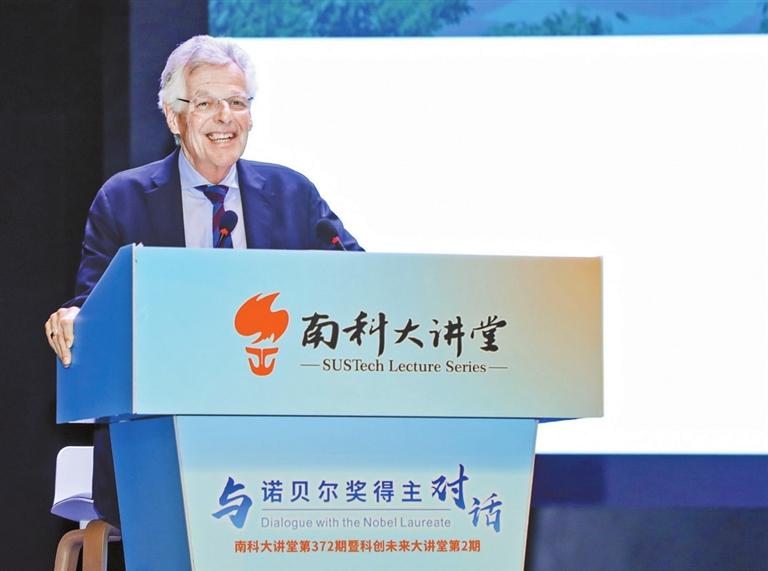
Han Ximin 1824295095@qq.com A ROUNDTABLE discussion on artificial intelligence (AI) and finance held at the Southern University of Science and Technology (SUSTech) on Friday attracted a full house of over 800 students and industry professionals. Professor Myron S. Scholes, an American economist and Nobel Laureate in Economics, and Professor Jin Li, vice president of SUSTech and acting dean of the Business School, explored the application of AI in the financial sector, the importance of financial risk management, and the crucial role of trust and governance structures in investment management. “Currently, there are boundaries to the capabilities of AI. Despite its excellent performance in handling big data and pattern recognition, there are still deficiencies in dealing with unseen exceptions, creation, and decision-making,” said Scholes. He believes that financial management needs to fully leverage the advantages of AI. “While AI can assist in handling repetitive tasks, human intervention and assistance are still needed in creative and decision-making areas dominated by human intelligence, especially when dealing with complexity and exceptional situations in the financial field,” said the Nobel laureate. Scholes also emphasized the role of options pricing models in market forecasting and risk management, especially the impact of tail events on the compounded returns of investment portfolios. In trust and governance structures, Scholes believes that fund managers with high levels of trust can operate more flexibly and reduce constraints in governance structures. Governance structures should balance innovation and constraints to address uncertainties and achieve higher compounded growth rates, according to the professor. Jin believes AI has enormous potential applications in the financial sector, especially in financial management and investment portfolio management. By handling large amounts of data and identifying anomalies in the market, AI can help human traders improve efficiency and provide support in identifying exceptional situations and innovative investment decisions. Regarding risk management, Jin agreed with Scholes, emphasizing the importance of focusing on compounded returns rather than simple average returns and considering the impact of tail events for enhancing long-term portfolio returns. Scholes is the Frank E. Buck Professor of Finance, Emeritus, at the Stanford Graduate School of Business, a Nobel Laureate in Economic Sciences, and co-originator of the Black-Scholes options pricing model. Scholes’ research has focused on understanding uncertainty and its effect on asset prices and the value of options, including flexibility options. Scholes was awarded the Nobel Prize in 1997 for his new method of determining the value of derivatives. He is currently the chairman of the Board of Economic Advisers of Stamos Partners. | 
